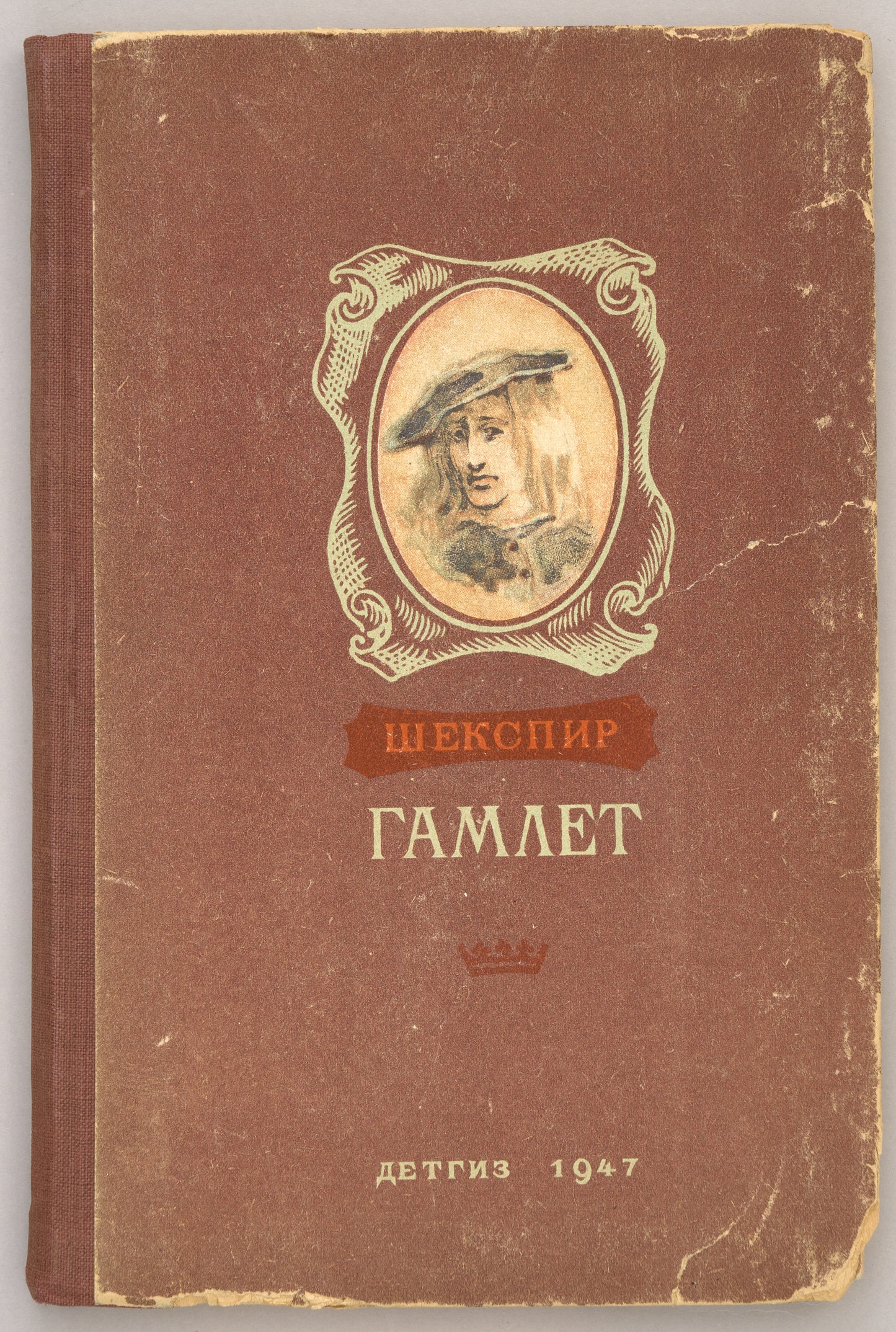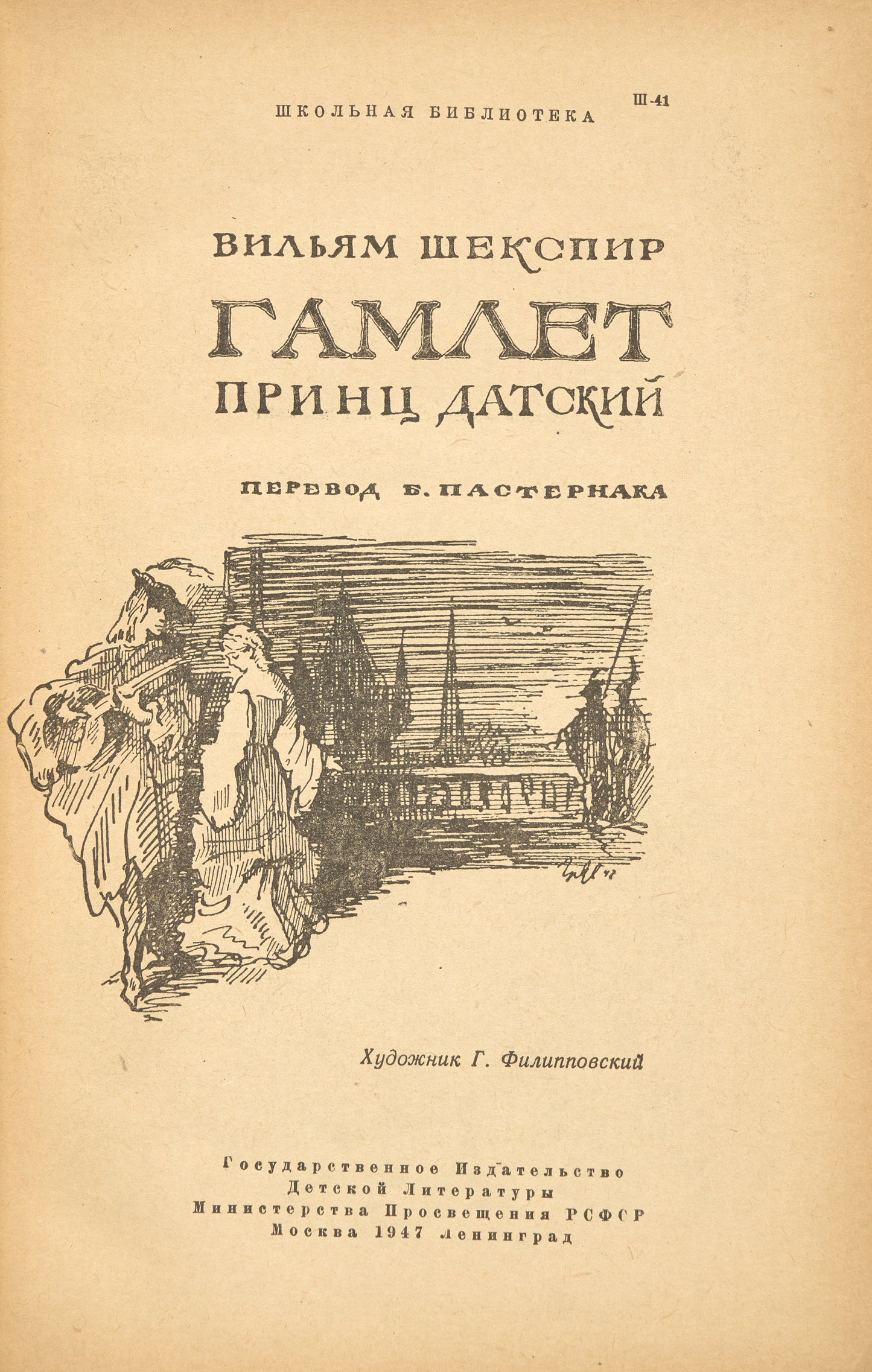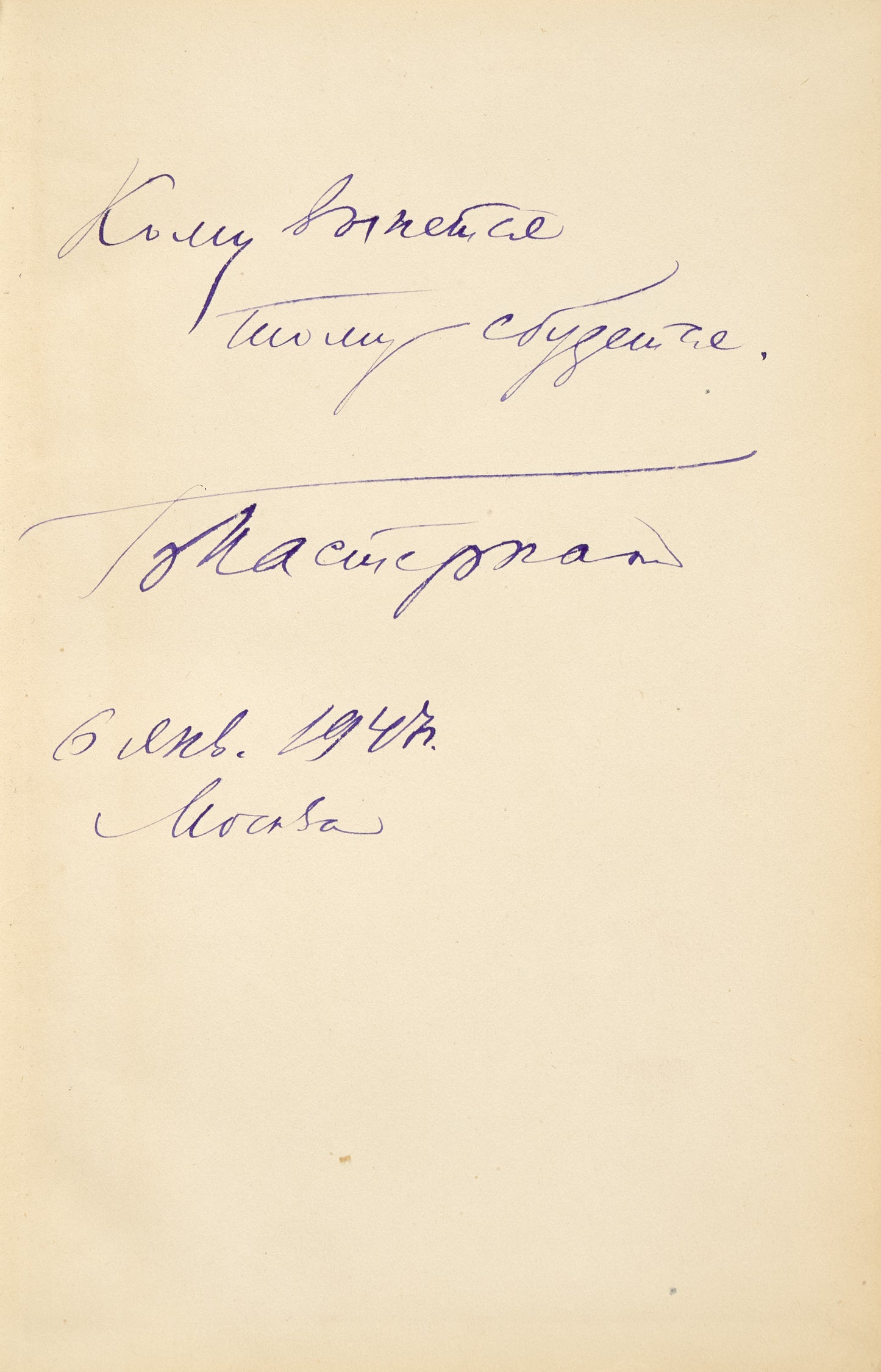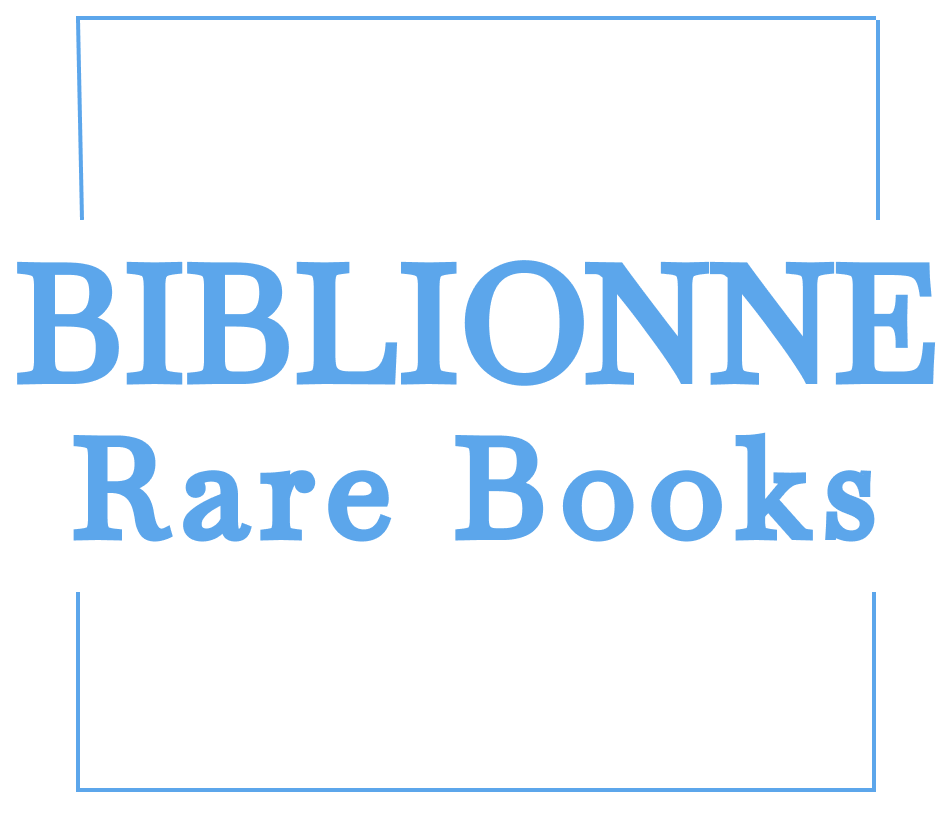Shakespeare, William
The Tragedy of Hamlet. Signed by Boris Pasternak, the translator.
The Tragedy of Hamlet. Signed by Boris Pasternak, the translator.
Couldn't load pickup availability
Shakespeare, William [The Tragedy of Hamlet: Prince of Denmark]. Gamlet: Prints Datskii.
Series Shkol’naya Biblioteka.
Translation by B. Pasternak.
[Preface and comments by M. Morozov].
Illustrated by G. Filippovskiy.
Moskva-Leningrad, Detgiz, 1947.
8vo, 188, [4] pp., ill.
In publisher’s illustrated binding. Signed and inscribed by Pasternak to front free endpaper.
Near good condition, worn and losses around edges, cracks to front cover, cracks to p. 59–66 edges.
Signed and inscribed by the translator Boris Pasternak: 'Komu vynetsia / tomu sbudetsia. / B Pasternak . 6 ianv. 1947 g. / Moskva'. [Whoever pulls up it, will get it. B. Pasternak. January 6th, 1947. Moscow]. Most likely, this signed copy was a prize in some game. Third edition of Hamlet in Pasternak’s translation.
Boris Pasternak (1890–1960), a Nobel laureate, translated eight of Shakespeare’s plays into Russian: 'Hamlet', 'Romeo and Juliet', 'Antony and Cleopatra', 'Othello', two parts of 'Henry IV', 'King Lear', and 'Macbeth'. This was a way for him to work as a man of letters and avoid repression. His main goal as a translator was to make Shakespeare a Russian poet. In 1943, the British Embassy wrote a letter to Pasternak expressing gratitude for his work on the translations.
In 1939, Vsevolod Meyerhold requested Pasternak’s translation of 'Hamlet' for the Aleksandrinsky Theater. Following Meyerhold’s arrest that year and the murder of his wife, Zinaida Raikh, Pasternak feared that he would be arrested himself in connection with the case against the avant-garde theater director and would therefore fail to complete the translation. However, the first complete translation of 'Hamlet' was published in the magazine 'Molodaia Gvardiia' (No. 5–6, 1940). The first book edition of 'Hamlet' was issued in 1941 and is considered one of the best 'Hamlet' translations in the Russian language. However, for the book edition, Pasternak largely changed the text at the request of the publishing house. In total, there are about twelve variants of the translation published, each differing from the others. Interestingly, Grigory Kozintsev used Pasternak’s translation for his classic film adaptation of 'Hamlet' (1964).
Most likely in this autograph Pasternak quoted 'Podbliudnye Pesni' (1824) by a poet and a leader of the Decembrist Revolt Kondraty Ryleyev. It was Russian ritual songs performed during the Christmas divination by lot, which, in a figurative form, predict the future for each participant.
Zakharenko, 1995. #112.
OCLC locates two copies of this edition: in the Ljubljana City Library and the Berlin State Library.






